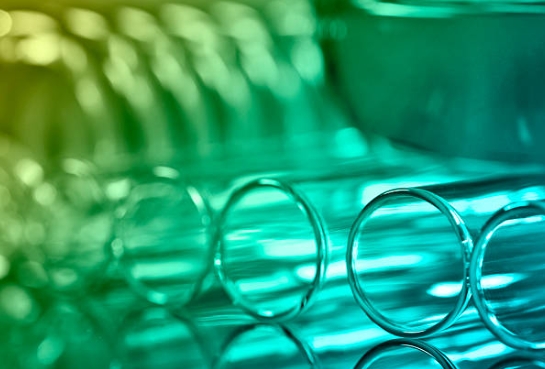Please Choose Your Language
Views: 222 Author: Carie Publish Time: 2025-03-28 Origin: Site








Content Menu
● Introduction to Chemical Raw Materials
>> Key Characteristics of Chemical Raw Materials
● Types of Chemical Raw Materials
● Applications of Chemical Raw Materials
● Challenges in Using Chemical Raw Materials
● FAQ
>> 1. What are chemical raw materials?
>> 2. What industries rely on chemical raw materials?
>> 3. What is the difference between organic and inorganic chemical raw materials?
>> 4. Why is crude oil considered a vital chemical raw material?
>> 5. How can we address environmental concerns associated with chemical raw material usage?
● Citation
Chemical raw materials form the backbone of numerous industries, ranging from agriculture and pharmaceuticals to construction and electronics. These materials are essential for manufacturing processes, enabling the creation of products that sustain modern life. In this article, we will explore the most commonly used chemical raw materials, their applications, and their significance in various sectors.

Chemical raw materials are substances used as inputs for industrial processes to produce finished goods or intermediates. These materials can be categorized broadly into organic and inorganic compounds. They are derived from natural sources such as minerals, plants, and petroleum or synthesized through chemical reactions.
1. Defined Composition: Chemical raw materials have a specific and unchangeable chemical structure.
2. Versatility: They are used across multiple industries, including agriculture, energy, and manufacturing.
3. Forms: These materials exist as solids, liquids, or gases.
Organic raw materials are carbon-based compounds derived from living organisms or synthetic processes. Common examples include:
- Crude Oil: Used to produce plastics, fuels, and synthetic fibers[3].
- Rubber: Essential for tire manufacturing and industrial seals[3].
- Cotton: Used in textiles[3].
Inorganic raw materials are mineral-based substances that do not contain carbon-hydrogen bonds. Examples include:
- Iron Ore: Used in steel production[3].
- Limestone: A key ingredient in cement manufacturing[3].
- Salt (Sodium Chloride): Used in food processing and chemical industries[3].
These raw materials come from farming activities:
- Corn: Used for biofuels and food products[3].
- Wheat: A staple for food production[3].
Energy-related raw materials include:
- Natural Gas: Utilized as fuel and feedstock for chemicals like ammonia[5].
- Coal: Used in power generation and metallurgy[3].

Chemical raw materials serve diverse purposes across industries:
Materials such as cement (from limestone) and steel (from iron ore) are indispensable for infrastructure development.
Fertilizers like ammonium nitrate (derived from ammonia) enhance crop yields[5].
Active pharmaceutical ingredients (APIs) are synthesized using chemical intermediates.
Silicon is a critical material for semiconductors used in electronic devices[3].
Despite their importance, the use of chemical raw materials poses challenges:
1. Environmental Impact: Mining and processing can lead to pollution.
2. Resource Scarcity: Finite availability of some resources like crude oil.
3. Cost Management: Rising costs due to demand fluctuations.
Chemical raw materials are vital components that drive industrial growth and innovation. From crude oil to silicon, these substances enable the production of goods essential to modern life while posing challenges that require sustainable solutions.

Chemical raw materials are substances used as inputs for industrial processes to create finished products or intermediates.
Industries such as agriculture, pharmaceuticals, construction, electronics, and energy heavily depend on chemical raw materials.
Organic raw materials are carbon-based compounds derived from living organisms or synthesized chemically, while inorganic raw materials are mineral-based substances without carbon-hydrogen bonds.
Crude oil serves as a feedstock for producing fuels, plastics, synthetic fibers, and other chemicals essential to various industries.
Adopting sustainable practices like recycling, using renewable resources, and developing low-emission technologies can mitigate environmental impact.
[1] https://www.gharda.com/list-of-raw-materials/
[2] https://blog.csdn.net/qq_34917728/article/details/125122327
[3] https://www.ordoro.com/raw-materials
[4] https://patents.google.com/patent/CN102439595A/zh
[5] https://www.iea.org/energy-system/industry/chemicals
[6] https://patents.google.com/patent/CN113515585A/zh
[7] https://www.essentialchemicalindustry.org/the-chemical-industry/the-chemical-industry.html
[8] https://web.stanford.edu/group/Zarelab/publinks/856Chinese.pdf
[9] https://foodcom.pl/en/overview-of-the-most-important-raw-materials-and-chemical-intermediates/
This article highlights the top stannous sulfate manufacturers and suppliers in the UK, focusing on their product quality, industrial applications, and market presence. It emphasizes the UK's strength in producing high-purity stannous sulfate for surface treatment, water treatment, and electroplating industries. Key players like REAXIS and Atotech lead the market with innovative solutions, while OEM support and regulatory compliance remain core advantages of UK suppliers. The article also addresses the compound's uses and includes a detailed FAQ to assist industry professionals.
Germany leads Europe in Stannous Sulfate manufacturing, supplying high-purity, reliable chemicals essential for electroplating, glass production, pharmaceuticals, and more. Key German suppliers like TIB Chemicals AG, MCC Menssing, Univar Solutions GmbH, and VMP Chemiekontor GmbH offer tailored solutions, strict quality control, and global distribution for diverse industrial demands.
This article explores the top stannous sulfate manufacturers and suppliers in Europe, highlighting leading companies like TIB Chemicals and Chimica Panzeri. It details production technologies, quality standards, industry applications, and OEM services, offering insights for markets requiring high-purity stannous sulfate chemicals.
This article explores the top stannous sulfate manufacturers and suppliers in France, highlighting their product quality, compliance with environmental standards, customized OEM services, and key industrial applications such as aluminum surface treatment, electronics, pharmaceuticals, and wastewater management.
This article explores the top stannous sulfate manufacturers and suppliers in America, detailing key companies, product forms, industries served, manufacturing processes, quality controls, and environmental considerations. It highlights the benefits of sourcing stannous sulfate locally with customization and technical support options. Insightful images illustrate stannous sulfate forms, production, and applications in industrial processes. Finally, a FAQ section addresses common queries related to stannous sulfate use and supply.
This comprehensive report explores Japan's top nickel sulfate manufacturers and suppliers, highlighting their production capabilities, market positions, and product applications. Featuring companies like Sumitomo Metal Mining and SEIDO Chemical Industry, the article delves into manufacturing processes, industry uses, and environmental practices, reflecting the pivotal role of Japanese firms in the advancing global nickel sulfate market.
South Korea is a leading global hub for nickel sulfate manufacturing, dominated by Korea Zinc and KEMCO with a combined annual capacity of 80,000 tons. Leveraging advanced smelting technologies and government-supported strategic status, these manufacturers supply high-quality nickel sulfate for electric vehicle batteries, surface treatment, and chemical industries. South Korean suppliers offer comprehensive OEM services to international clients, meeting growing global demand with innovation, sustainability, and quality.
This article provides a comprehensive overview of leading nickel sulfate manufacturers and suppliers in Portugal, covering their technological capabilities, product lines, market roles, and strict compliance with international standards. Highlighting diverse applications from electroplating to battery manufacturing, it showcases Portugal’s growing importance in the global nickel sulfate supply chain. Accompanied by relevant images, the article emphasizes sustainability, innovation, and quality as cornerstones of the Portuguese chemical sector.
This article explores the top nickel sulfate manufacturers and suppliers in Spain, highlighting their product offerings, quality standards, and strategic advantages. It covers Spanish industry applications, OEM services, and explains why Spain is a preferred sourcing hub for global chemical buyers. The article also includes detailed FAQs and relevant images to provide a comprehensive understanding of the nickel sulfate market in Spain.
Italy’s nickel sulfate manufacturing and supply chain is advanced, diverse, and globally integrated—supporting key industries like batteries, electroplating, and catalysts. With leading companies, customized services, and sustainable practices, Italian nickel sulfate manufacturers and suppliers are crucial to meeting the world’s growing demand for this essential chemical.
This article provides an in-depth overview of the top nickel sulfate manufacturers and suppliers in Russia, focusing on major companies like Norilsk Nickel, their production processes, market presence, environmental initiatives, and the diverse industrial applications of nickel sulfate. It serves as a valuable resource for international businesses looking to source high-quality nickel sulfate from Russia.
Aluminum alloys have become indispensable materials in modern industry, owing to their light weight, high strength-to-weight ratio, corrosion resistance, workability, and versatility. However, their durability—especially when used in challenging environments—is critically dependent on
Electrophoretic coatings, often referred to as *E-coatings* or *electrophoretic deposition (EPD)*, have revolutionized surface finishing in the modern manufacturing landscape. They blend chemistry, material science, and advanced technology to create coatings that are durable, uniform, and environmen
Discover Europe's most prominent Nickel Sulfate Manufacturers and Suppliers, including sustainability-focused innovators and rapid-response distributors serving the EV, electroplating, and advanced materials sectors. Learn about top companies, key trends, market drivers, and FAQs to inform your industrial chemical sourcing decisions. This comprehensive guide highlights the critical role nickel sulfate plays in Europe’s green industrial future.
This article details France’s leading role in nickel sulfate production, covering major manufacturers and suppliers, innovative production methods, sustainability commitments, and the industry’s critical role in green technology supply chains. It also examines market drivers, regulatory compliance, and supply chain strategies while answering common industry questions. The content is especially relevant for businesses seeking OEM solutions for aluminum profile treatment and battery production.
This comprehensive guide details the leading Nickel Sulfate Manufacturers and Suppliers in Germany, highlighting their strengths, product applications, and why Germany is a global leader. It covers selection criteria, market trends, and answers to key FAQs for buyers and industry professionals.
This article offers a comprehensive guide to the UK’s top Nickel Sulfate Manufacturers and Suppliers, highlighting industry applications, leading brands, and sourcing strategies in the rapidly growing British and global markets. From surface finishing to electric vehicle batteries, discover how to select the right partner and stay ahead of industry shifts.
This article explores the top Nickel Sulfate Manufacturers and Suppliers in America, highlighting their key products, application areas, and essentials of reliable sourcing. With detailed industry profiles, market trends, future outlooks, and FAQs, it serves as a vital comprehensive resource for businesses seeking high-quality nickel sulfate and dependable partnership.
Choosing the best chemical raw materials for aluminum profiles is **critical to ensuring strength, durability, corrosion resistance, and sustainability** in the final products. The selection impacts not only the mechanical and aesthetic qualities but also influences cost-effectiveness, production ef
In the global industrial landscape, **chemical raw materials for surface treatment** play a critically transformative role in enhancing the durability, functionality, and aesthetics of countless products. Surface treatment chemicals help prevent corrosion, improve adhesion, increase wear resistance,
